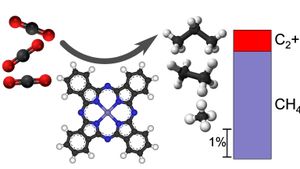FC Barcelona has taken significant strides to secure its financial future through strategic player sales and contractual arrangements, allowing the historic club to navigate its persistent financial struggles more effectively.
Over the past few years, Barcelona has been recognized for its remarkable ability to nurture talents through its renowned youth academy, La Masia. Yet, with limited openings for some rising stars to break onto the first team, the club has had to part ways with players to generate revenue and facilitate their careers. Keeping this spirit alive, Barcelona retains financial interests by securing agreements from future sales of several of these talented players.
One of the standout cases is Nico Gonzalez, who left Barcelona for Portuguese side Porto for €8.5 million in 2023, with Barcelona enjoying a buy-back clause set at €30 million. Gonzalez is now reportedly on the brink of transferring from Porto to Manchester City for approximately €60 million, meaning Barcelona could gain around €24 million from this deal, thanks to the 40% resale percentage stipulated in his contract.
Similarly, Francisco Trincao, who made the switch to Sporting Lisbon for €25 million, provides yet another avenue for Barcelona’s revenue. The club has maintained a 50% stake on any future sale of Trincao, increasing its chances of benefiting if he’s sold on to another club—he has recently been linked to AC Milan.
Barcelona's strategic foresight is also visible with players like Mika Marbel, who now plies his trade with Las Palmas after leaving Camp Nou. His recent association with both Roma and Sevilla for upcoming transfer periods highlights Barcelona’s potential financial gains from his future transfer, thanks to the equity retained.
Jean Clair Todibo, currently on loan at Nice, intrigues Barcelona fans, as the Frenchman’s permanent transfer is possible for €40 million. Barcelona retains 20% of any potential resale, maintaining its financial foothold should he make notable strides at Nice.
Another prime example is the Senegalese defender Mikael Faye, whose move to Rennes for €10.3 million features Barcelona holding the chance to reacquire him for €25 million, alongside 30% of any future resale earnings.
Likewise, Elex Moriba, who transferred to RB Leipzig, included only 10% of future resale for Barcelona, but if Moriba moves to Celta Vigo for €4.5 million, it could still net Barcelona around €450,000.
On another front, the recent signing of Abdessamad Zakaria to Real Betis has seen Barcelona also holding 50% of any future transfer sales. Critical to note, the club has the option to reacquire Zakaria for €25 million until the summer of 2025.
While managing these financial interests, retaining top talents is also pivotal. Ronald Araujo's recent contract renewal until June 30, 2031, has provided stability, yet reports from Marca uncovered concerning clauses within his deal. Specifically, it included a gigantic release clause of €1 billion, which is significantly reduced to €70 million for a limited time starting from July 1 to 10, 2025, before reverting to the higher amount. This stipulation could open the door for clubs like Juventus and Arsenal, who have shown interest.
The situation surrounding Araujo is emblematic of the tightrope Barcelona walks—a balance between safeguarding player talent and ensuring financial viability. Despite having renewed contracts, the club could be pressured to part with its defensive stalwart if suitable offers arise, especially as Barcelona wrestles with the need to cut costs to achieve financial equilibrium.
With Araujo having played six matches and contributed one goal and one assist already this season, his capabilities on the field certainly make him one of the la Liga's standout defenders. Still, the whispers about potential moves simmer even as the January window has closed.
Decisions made now will certainly affect Barcelona's longer-term financial strategies. The financial recovery hinges significantly on these arrangements with future sales, alongside the responsibility to maintain competitive performance on the pitch. The club's overseers remain vigilant, monitoring the shifting tides of player interest and market dynamics. This vigilant approach is not merely reactive but has evolved from previous mistakes where talent slipped through the cracks without adequate retention strategies.
Barcelona’s ability to adapt and thrive hinges upon the successful execution of these tactics. The intertwining relationship between nurturing talent and fiscal responsibility beckons continued scrutiny, as fans eagerly anticipate how these strategic maneuvers will shape the club’s future.



